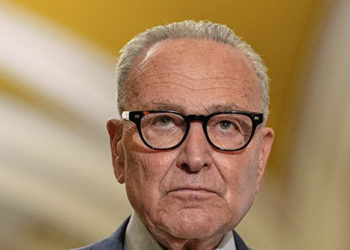COPENHAGEN ― The presidents of the European Commission and the European Council have one thing in common ― their ideas aren’t flying.
That much became pretty obvious even before a summit of EU leaders in Copenhagen on Wednesday stretched beyond its scheduled finishing time. Presidents and prime ministers used the platform to insist that something must be done about Russian aggression, but without really coming to much consensus on exactly what it should be.
The proposals of both Commission boss Ursula von der Leyen and António Costa, president of the European Council, faced strong resistance: Von der Leyen’s from the biggest and most powerful EU countries like Germany, France and Italy, which are naturally cautious about Commission overreach; Costa’s from Hungary. It underscored that, when it comes down to it, the bloc’s 27 nations still pull the strings.
Von der Leyen, increasingly the face of the EU ― at least as far as Donald Trump is concerned ― made a push to get support in Copenhagen on the establishment of a “drone wall” that would detect and shoot down drones flying across Europe’s eastern flank. But the concept as such was rejected by the biggest countries.
“I’m wary,” said French President Emmanuel Macron, adding “things [need to be] a little more sophisticated.” German Chancellor Friedrich Merz expressed his opposition in the summit room too, three officials said. The anti-drone idea is expected to morph into something else, very likely with a different name.
The president of the European Council, which is made up of the bloc’s 27 governments, wanted to use the summit to push for agreement on scrapping the need for all members to assent to new countries joining the EU. The idea was to make it easier for Ukraine’s and Moldova’s accession, getting past countries like Hungary who want to stop it happening.
But that didn’t get far off the ground either. In the summit room, Hungarian Prime Minister Viktor Orbán shot down the idea, according to three diplomats with knowledge of the discussions in Copenhagen. Expectations are not high that much will change on voting rules any time soon, they said.
Leaders did decide they should continue their work on finding a way to use €140 billion worth of Russian assets frozen in Europe since Moscow’s invasion in 2022 to fund Ukraine. They also reiterated their determination to find a way to tackle Russian drone incursions in European airspace ― but neither of those ideas found concrete solutions.
Leadership role
One of the reasons the two presidents wanted to make a splash was because they are vying for relevancy, and to make the point that they, personally, are doing everything they can to help Ukraine, according to the three diplomats.
While von der Leyen has made many proposals to boost EU defense, this remains a core part of national governments’ individual powers. The bloc’s biggest countries don’t want the Commission to take away their authority. Smaller countries are more sanguine, particularly those in the East, because they feel more vulnerable to the Russian threat.
Costa wanted to show that he, too, could play a leadership part, two diplomats said. Up until now he’s played mainly a supporting role, leaving von der Leyen to bask in the spotlight. As a center-left chief presiding over a group of leaders, most of whom are center-right, that’s meant Costa has had to pick his battles.
Yet, officials were still unclear why the enlargement issue was a hill he wanted to die on, given the low chances of success. There’s still the likelihood he has a plan B, one official with knowledge of EU discussions said.
Sounds like populism
Officials rejected criticism that von der Leyen and Costa were pushing for badly conceived proposals. “It’s just called leadership,” said another EU official, implying that ideas are floated and gradually get pushed and evolve before they become real.
The summit showed that Europe’s most powerful national leaders still have the final word. That sometimes can be unsettling for those who operate the bloc’s machinery in Brussels — particularly when they hear a leader like Germany’s Merz start talking like there’s political capital in criticizing the EU.
In recent days he has attacked the Commission for an excess of red tape and bureaucracy. EU officials and diplomats think that sounds like populism. They also think they know what lies beneath it: He’s telling them to get back in their box.
For von der Leyen and Costa, it means they still have an uphill battle.
Nette Nöstlinger, Giorgio Leali, Gerardo Fortuna and Gabriel Gavin contributed to this article.
The post Von der Leyen and Costa psychodrama sees them struggle in Copenhagen appeared first on Politico.




